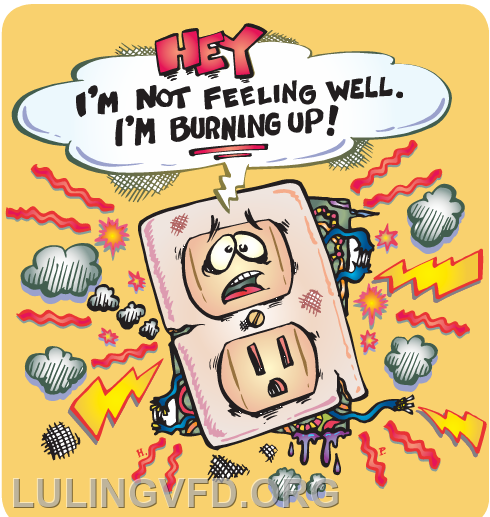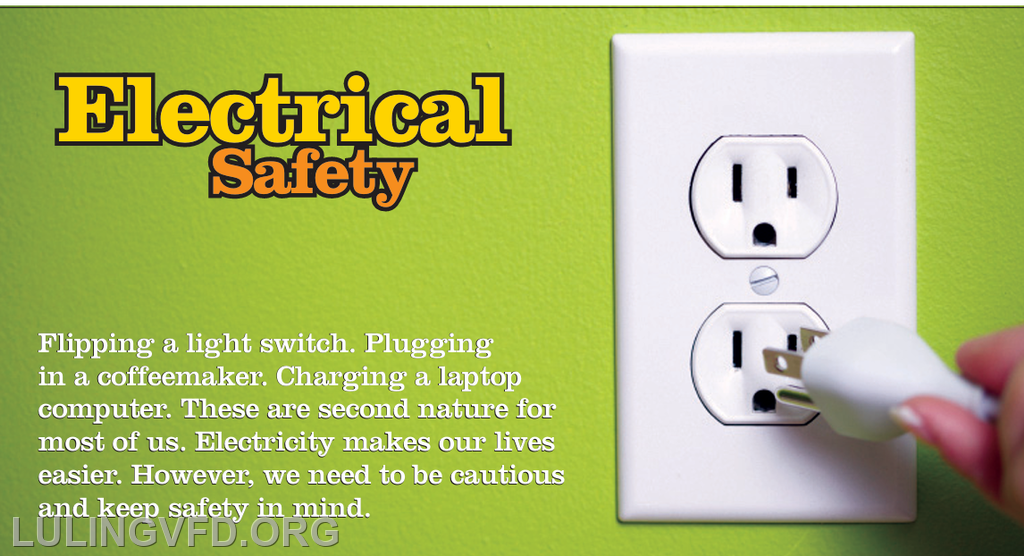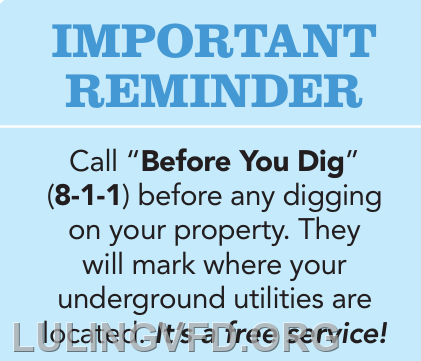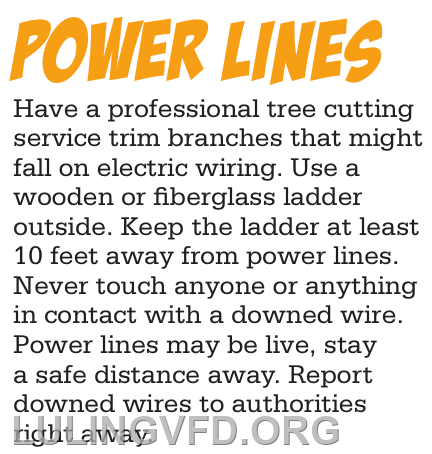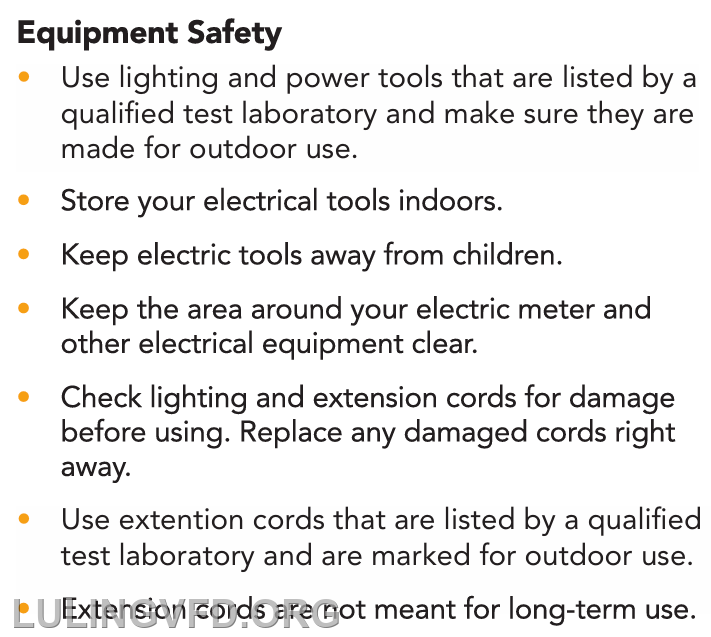| May is National Electrical Safety Month: NFPA Resources to Help Reduce Risk
Electricity helps simplify our lives, but it also poses serious risks, including shock, fire, and other related hazards. Many people are not aware of electrical dangers and yet each year many people are injured or killed from these hazards.
By following simple yet effective safety tips and exercising caution indoors, everyone can help minimize the risk of injury and property damage, thus protecting themselves and their families.
SAFETY TIPS
• Have all electrical work done by a qualified electrician.
• When you are buying or remodeling a home, have it inspected by a qualified private inspector or in accordance with local requirements.
• Only use one heat-producing appliance (such as a coffee maker, toaster, space heater, etc.) plugged into a receptacle outlet at a time.
• Major appliances (refrigerators, dryers, washers, stoves, air conditioners, microwave ovens, etc.) should be plugged directly into a wall receptacle outlet. Extension cords and plug strips should not be used.
• Arc-fault circuit interrupters (AFCIs) shut off electricity when a dangerous condition occurs. Consider having them installed in your home.
• Use ground-fault circuit interrupters (GFCIs) to reduce the risk of shock. GFCIs shut off an electrical circuit when it becomes a shock hazard. They should be installed inside the home in bathrooms, kitchens, garages and basements. All outdoor receptacles should be GFCI protected.
• Test AFCIs and GFCIs once a month according to the manufacturer’s recommendations. You do not need a flame to start a fire. Fires can start when heat builds up near things that burn. This can happen when a hot light bulb is near things that burn, such as cloth or paper, or a cord has been placed under a carpet.
• Check electrical cords to make sure they are not running across doorways or under carpets. Extension cords are intended for temporary use. Have a qualified electrician add more receptacle outlets so you don’t have to use extension cords.
• Use a light bulb with the right number of watts. There should be a sticker that indicates the right number of watts.
Important remInder : Call a qualified electrician or your landlord if you have:
• Frequent problems with blowing fuses or tripping circuit breakers
• A tingling feeling when you touch an electrical appliance
• Discolored or warm wall outlets
• A burning or rubbery smell coming from an appliance
• Flickering or dimming lights
• Sparks from an outlet
FOR MORE INFORMATION VISIT: nfpa.org/education
Safety tip sheets are attached for your convenience |
